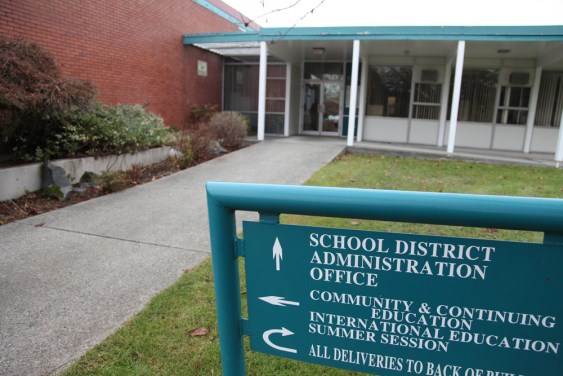The Burnaby school board says Canada runs the risk of alienating refugees with proposed cuts to federal funding for language and other settlement services starting April 1.
The board unanimously passed a motion last week for the B.C. School Trustees Association to urge the Ministry of Education and the Canadian School Boards Association to lobby the feds to provide “increased, predictable and stable funding” so school boards can give newcomer families the supports they need.
“Multiple year reductions in budgets and uncertainty in funding timelines in the areas of SWIS (Settlement Workers in Schools) and LINC (Language Instruction for Newcomers to Canada) programs force school districts to cut essential positions and programs that are vital to the successful settlement of students and families in schools and the community,” states the motion, which will now be tabled at the B.C. School Trustees Association AGM in April.
Even as pressure on the programs has increased, the federal government has proposed 10 per cent cuts to both SWIS, which connects newcomers to schools and other community resources, and LINC, which provides English language classes, school officials said.
Since the Trudeau government’s acceleratedSyrian refugee operation began in November 2015, the district said refugees have gone from representing roughly one-quarter to about one-half of all newcomers in the Burnaby school district’s SWIS program.
Since refugees come with more needs, according to coordinator Natalya Kahn, more resources are needed, not less.
“These are all people with multiple needs,” she told the NOW. “They have children, medical needs. Most of them have post-traumatic disorders. They require much more support. Not having enough money to support them is not very consistent. I don’t see how it can be done.”
A three-year contract negotiated with the Conservative government in 2014 didn’t take into consideration the influx of refugees since 2015, Kahn said, so the incoming Liberals have supported the operation with top-up funding that Kahn said was “workable” but unpredictable.
“You’d never know if the money was coming or not,” she said.
And now, even the main budget for the program has been cut in a proposed new three-year plan sent out by the government at the end of December.
“We don’t know if they’re going to support the Syrian refugee folks with additional funding or not,” Kahn said. “I was told verbally that we will receive more money, but when and how much, they were not able to confirm.”
Burnaby’s LINC program faces similar reductions, according to the district, even though many newcomers are already waiting to get into classes, especially because of a shortage of child-minding seats.
“That has implications for their family in terms of finding employment,” said assistant superintendent Heather Hart. “Language is key to everything.”
Even if the government does provide extra funding after the cuts, she said, getting it piecemeal prevents the district from making the most of it for refugee families.
“That makes it very difficult to do any forward thinking for this programming and to support people properly,” Hart said. “You can’t plan ahead, and we can’t start staffing in the middle of the year.”
Reduced resources for programs like SWIS and LINC will ultimately impact newcomers’ integration into Canadian society, according to Kahn.
“Multiculturalism – are they going to be part of it?” she said. “It will take longer, and where they can wander on the way we don’t know. We want them to be part of our society, the fabric, but there should be a certain commitment to that.”



